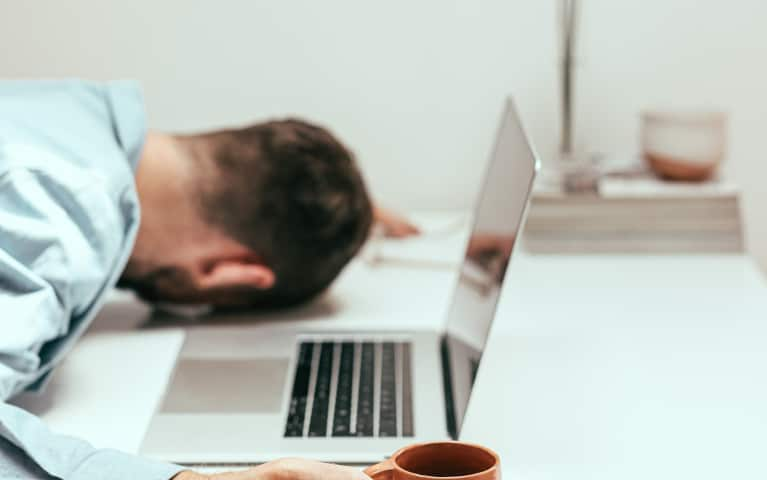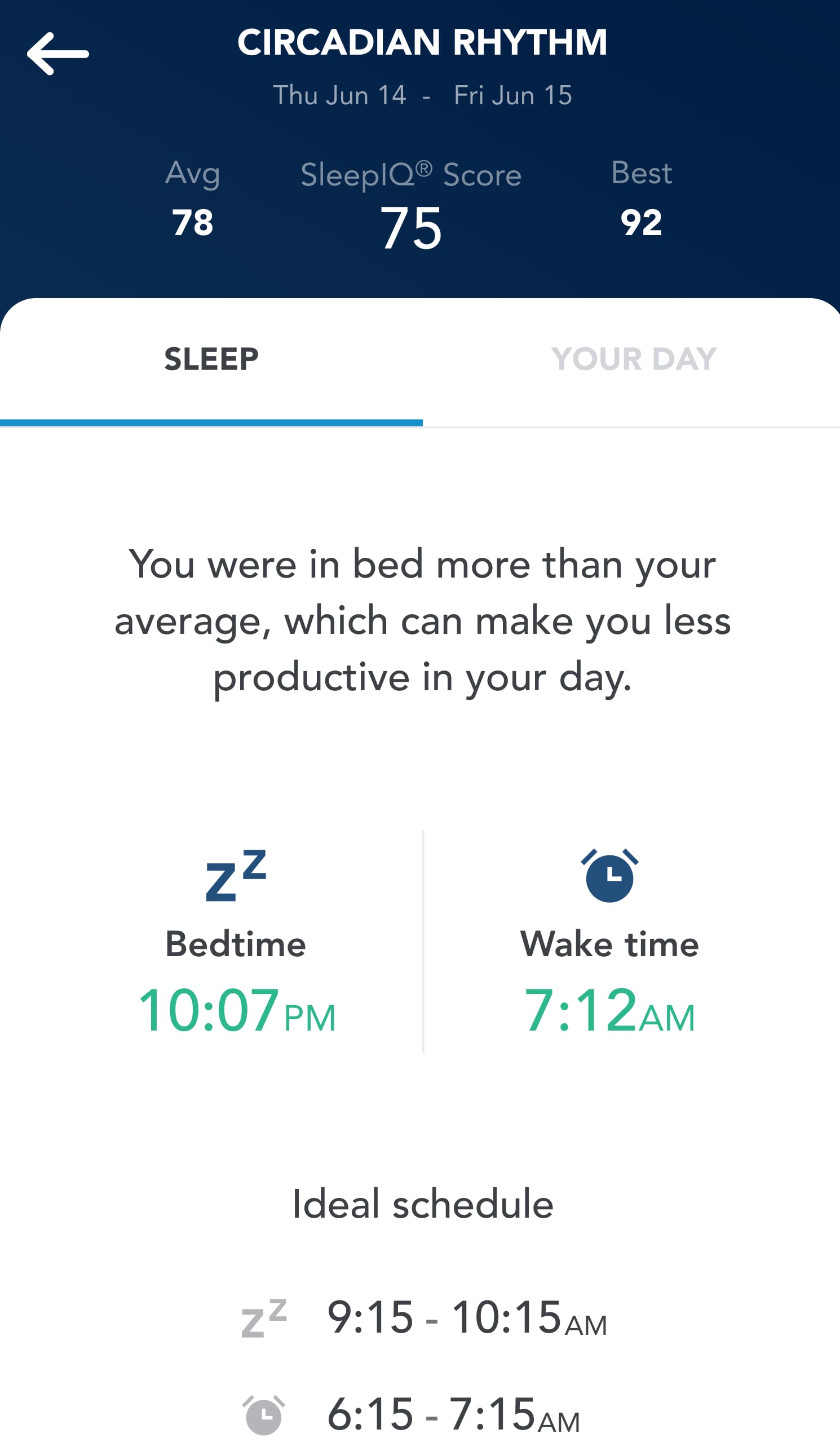
Daylight Saving Time sleep problems are common. The time shift impacts your sleep regularity, and timing, resulting in lower sleep quality. But by learning more about your circadian rhythm, you can get better quality sleep during daylight saving time (DST) changes.
DST isn't just the time of year when we set our clocks one hour forward or back. It's also when many people suffer from sleep problems due to the time adjustment.
If you're someone who struggles with sleep during DST, there's hope. One of the best ways to deal with sleep issues is by learning more about your circadian rhythm and adjusting accordingly.
Why We Have Daylight Saving Time
Daylight Saving (the correct spelling is without the “s," according to the United States Department of Transportation) Time begins the second Sunday of March and concludes the first Sunday in November.
It was first introduced in 1918 during the war. Leaders believed that this measure would encourage citizens to wake up when the sun rises and conserve fuel for the troops.
The current DST schedule began in 2007. Only two states don't follow DST: Hawaii and Arizona.
Your Circadian Rhythm, Daylight Saving Time and Sleep Problems
The circadian rhythm is your body's natural way of recognizing when it's time to sleep and time to wake up. At night, the natural hormone melatonin rises and makes you feel sleepy. During the day, cortisol rises and helps you feel more awake and alert.
When your regularity, timing and light exposure are disrupted—like during DST or changing time zones when traveling— you have more restless sleep, which makes you feel sleepier during the day. Tracking your circadian rhythm and anticipating daylight saving time changes can help improve your sleep quality.
Your circadian rhythm is linked to your exposure to light. Exposure to light (during the day) keeps your circadian rhythm synched up with the environment around you. That means when DST ends, managing your light exposure becomes critical. Shorter days offer less opportunity to enjoy the sunlight, which can make you feel more fatigued. Add in long days at work, and a short walk outside during your lunch hour becomes even more important.
Track Your Circadian Rhythm With Sleep Number
If you're unsure what your circadian rhythm is, a Sleep Number® smart bed with SleepIQ® technology can help you track your sleep patterns. It measures the duration, efficiency and timing of your sleep.
Sleep Number® SleepIQ® technology helps you identify sleep trends and offers actionable insights. You can analyze your sleep patterns and determine the ideal times to head to bed and when to wake up.

Tips on Dodging Sleep Problems When Daylight Saving Time Changes
If you don't already have a consistent sleep cycle with a similar sleep and wake-up time each day, try to make one stick. Studies show that having a regular sleep schedule can make it easier for you to get quality sleep.
The one-hour difference when DST changes can throw off your circadian rhythm temporarily. About two weeks before DST changes, begin moving your bedtime and wake-up time in 15 minute or 30-minute increments. Slowly change your mealtimes, exercise times and interactions with your pets as well. The gradual adjustment will give your body (and your pet) the time it needs to make up for the change in sleep.
7 Other Ways to Get Better Sleep
Aside from sticking to a regular sleep routine, here are other tips that can help you get better sleep:
Focus on Getting as Much Quality Sleep as You Can
Most adults need seven to eight hours of sleep per night, according to the Centers for Disease Control and Prevention. However, since most of us struggle to get enough sleep while we adjust to daylight saving time, try to focus on getting high-quality sleep when you can.
Purchase a Comfortable Mattress
Buying a supportive mattress can help you fall asleep faster and enjoy deeper sleep. A Sleep Number® smart bed can identify your body's pressure points and adjust firmer or softer so the mattress comfort level is ideal for you.
If you need another reason to check out a Sleep Number® smart bed, 94% of Sleep Number sleepers report better sleep quality vs a non-smart bed.*
Avoid Caffeine Or Other Stimulants After Noon
If possible (life and work happen), say no to coffee, soda or other stimulants after noon. If you consume stimulants in the afternoon, it can make it harder for you to fall asleep at night.
Turn The Lights Down About One Hour Before Bed
If you can help it, avoid the bright blue lights from smartphones, televisions and computers about one or two hours prior to bedtime. Try replacing your blue-tone lightbulbs with ones that have a red glow too. Exposure to these lights can make body may “think" it's daylight when it's really not. Although any kind of light can do this, blue light suppresses melatonin—the aforementioned hormone that helps you fall asleep—more so than other types of light, according to Harvard Health.
Plan For The Following Day
Worrying about tomorrow can keep you up at night. To lessen that anxiety, plan as well as you can for the next day. Make a to-do list so you don't forget anything. Choose your clothes for the next day. Set the alarm. Do whatever you can to make tomorrow easier. You'll probably feel calmer and more relaxed when you finally lay down, and that might help you get better sleep.
Turn On The Lights When You Get Up
When you first wake up, seeing bright light can help you wake up. Open up the curtains and let the light in. If the sun hasn't risen yet or if it's cloudy, turn on your brightest light. Let your brain think it's not dark to help yourself naturally perk up.
Keep Hydrated
Dehydration can make you feel groggy. Many of us are thirsty after waking up since sleep can be dehydrating, especially for those who sleep six hours or less per night. Try drinking a tall glass of water in the morning.
Even though DST changes can interfere with your ability to get quality sleep, don't fret. By tracking your circadian rhythm and adjusting your sleep and wake times, you can make the transition easier. Know that this sleep phase is also just temporary. Our bodies usually adjust after about two days to a week.
Like diet and exercise, quality sleep is essential for optimal wellbeing and performance. Because everyone's sleep needs are different, Sleep Number® smart beds sense your movements and automatically adjust firmness, comfort and support to keep you both sleeping comfortably. Find your Sleep Number® setting for your best possible night's sleep, and if you own a Sleep Number® bed, log in to your Sleep Number® Rewards account to see your exclusive offers, refer friends and more.
*Based on self-reported data from 90 incentivized, first-time users 3/23-6/23, 6 weeks with smart bed features disabled, then 6 weeks enabled.
About the Author
Teresa K. Traverse is a Phoenix, Arizona-based editor and writer who covers lifestyle topics including health, science, travel and food. Her work has appeared in outlets including Bust, Parenting and Weight Watchers magazines and online at Refinery29, Brides and Rachael Ray. See more of her work at teresaktraverse.com.